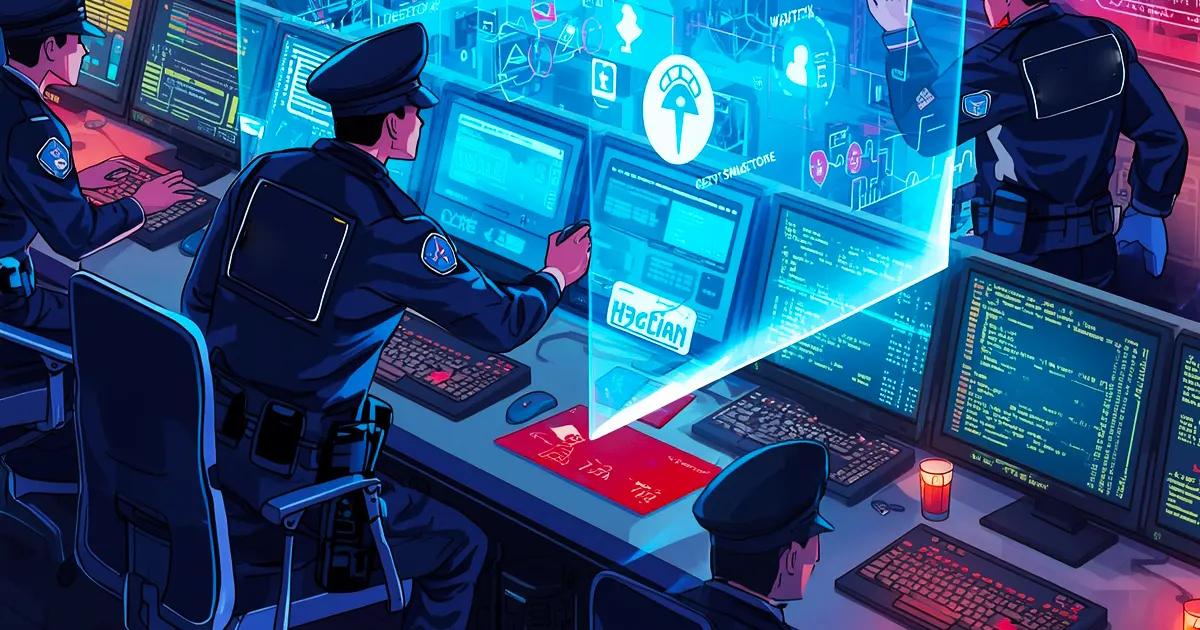
What if you could stop a cybercrime as it's happening - before the victim even realizes they've been duped?
Sounds like something straight out of a cyber-thriller, right?
Well, that's exactly what the Noida Cyber Crime Unit just did - and it's shaking up how India looks at digital policing.
In a rare and impressive operation, the Noida Police identified seven live cyber-fraud cases in progress across India and successfully stopped them - in real time.
Yes, you read that right - frauds that were still unfolding were neutralized before the victims lost their money.
This wasn't luck. It was data-driven vigilance, technical intelligence, and sharp cyber instinct.
How It All Started: Scanning Mule Accounts
According to The Times of India, the cyber cops had been tracing mule bank accounts - accounts used by scammers to route stolen money from victims to kingpins operating overseas.
During this investigation, officers noticed something unusual: a cluster of active accounts showing suspicious, coordinated money flow patterns.
Instead of waiting for complaints to arrive, they acted.
The team began monitoring transaction trails in collaboration with the Indian Cyber Crime Coordination Centre (I4C) and NPCI (National Payments Corporation of India). And the results?
A trail that led them straight into seven ongoing scams - spread across Tamil Nadu, Telangana, Odisha, Gujarat, and Rajasthan.
Stopping Scams Midway
When investigators spotted red flags, they didn't just record the data - they picked up the phone.
Victims were contacted while the transactions were still in process.
- In one shocking case, a bank employee had transferred over ₹14 lakh to a fake stock trading app. The fraudsters had created a slick, professional-looking interface showing "profits" to lure victims deeper. Before the final tranche could be sent, the cyber team intervened - saving the person from total financial wipeout.
- In another instance, a Tamil Nadu resident, who couldn't understand Hindi or English, had already invested ₹40 lakh into a bogus investment group. The team contacted him, explained the situation in his native language, and stopped him from losing even more.
Can you imagine that level of real-time rescue?
That's what proactive cyber policing looks like in 2025.
Why This Case Should Shake You (Yes, You!)
If you're a cyber security student, this is not just another crime story - it's a lesson in modern cyber defense.
The most dangerous scams today are no longer simple phishing links or "Nigerian prince" emails.
These are AI-aided, multi-layered, multilingual fraud operations that mimic legitimate apps, websites, and trading dashboards.
Ask yourself:
- Would you be able to tell a fake trading platform from a real one if the UI was identical?
- Could you identify a mule account by transaction pattern alone?
- If someone asked for help in another language, would your detection tools still catch the fraud?
If your answer to any of those is "not yet", then this story is your wake-up call.
Because this is what real-world cybersecurity defense looks like - fast, analytical, and deeply human.
The Tech Behind the Win
So, how did the cops pull this off?
- Data Intelligence: By integrating NPCI transaction data with local surveillance, the cyber unit tracked abnormal fund flows in real time.
- Behavioral Patterning: They used pattern recognition to identify "burst transfers" - where multiple small transactions suddenly spike.
- Rapid Response Framework: Instead of waiting for FIRs, they built a pre-emptive communication model - calling victims immediately when anomalies appeared.
- Human Element: Multilingual communication and empathy-based engagement helped convince victims who initially didn't believe they were being scammed.
It's a perfect blend of tech and intuition - and a model India's other cyber cells are now studying closely.
The Bigger Picture: Cybercrime Is Getting Smarter - Are You?
Think about it - if fraudsters can operate real-time investment scams that look legitimate, how long before they start using deepfake voice calls, cloned websites, or AI-generated customer care chats?
The line between real and fake is blurring faster than ever.
Today, you can't just be a "tech geek."
You need to be a cyber detective - someone who can see patterns others miss, predict threats before they strike, and act before a complaint even arrives.
This Noida operation isn't just a win for the police.
It's a blueprint for how data-driven defense can save millions - if the right minds (like yours) are behind it.
ISOEH's Take: Train Like the Defenders of Tomorrow
At ISOEH, this story hits home.
Because this is exactly what cyber education should prepare you for - live crime prevention, not just post-attack analysis.
Every student of ethical hacking, SOC analysis, or cyber forensics must learn how to:
- Detect mule account patterns
- Trace transaction anomalies
- Recognize AI-generated scam platforms
- Communicate cyber risks effectively
The war against cybercrime isn't fought in theory anymore - it's happening right now in code, in data, and in conversations.
Final Thought: The Future Belongs to the Watchful
Cyber cops in Noida didn't just stop seven frauds - they proved that vigilance, speed, and tech-savviness can outsmart even the smartest criminals.
So, the next time you open a trading app, click a referral link, or join a "crypto group," ask yourself - is this real, or is this bait?
And if you want to be the one answering that question for the nation - ISOEH is waiting for you to join the next generation of cyber defenders.
Exclusive Blog
Read All Exclusive Blog »
With world working from home, it's time to make it enjoyable and effective.
Read DetailsHacking Tools
Explore All Hacking Tools »
UFTP is an encrypted multicast file transfer program for secure, reliable & efficient transfer of files. It also helps in data distribution over a satellite link.
Read Details










